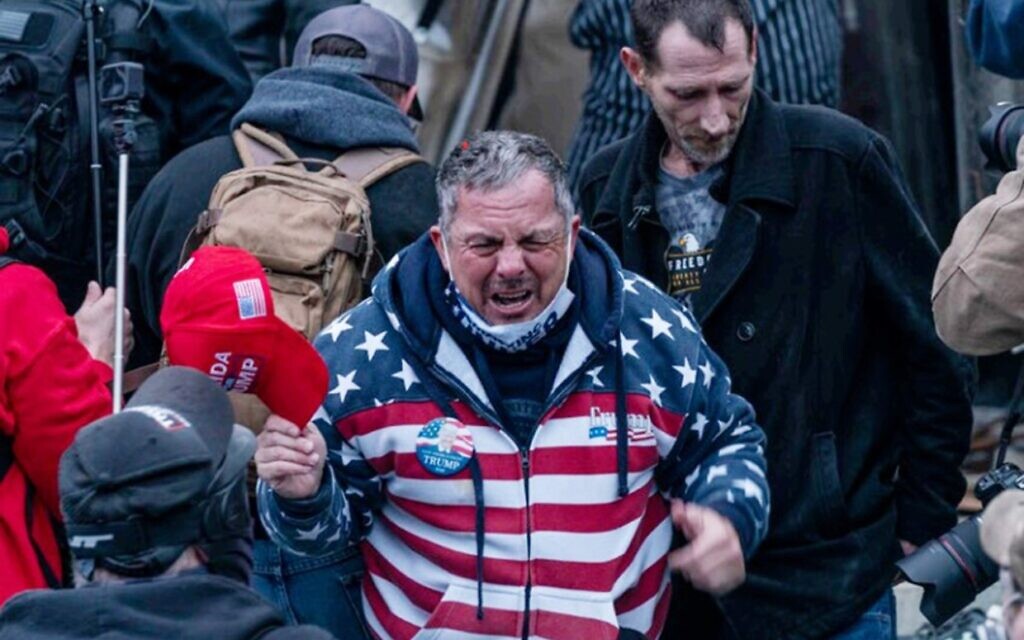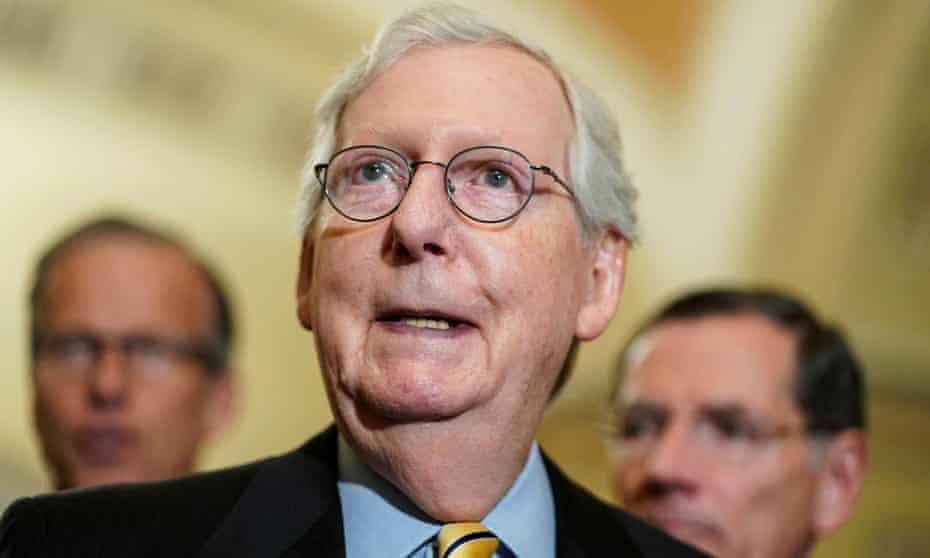
Randi Weingarten, center in mask, meeting with a political advocacy group of suburban women. Credit.Damon Winter/The New York Times
Dear Commons Community,
Michelle Goldberg in her column this morning examines the plight of public schools as the country battles new COVID outbreaks. Entitled, We Desperately Need Schools to Get Back to Normal, she lays out a number of issues that are threatening public education. In much of her column, she refers to Randi Weingarten who is trying to rally both policymakers and teachers to stay the course but exactly what that course is, is nebulous at best. Here is an excerpt from Goldberg’s column.
“Since August, Weingarten has been traveling constantly; when I met up with her in December, she’d visited more than 60 schools. What she hears, over and over, is that this year started with exhilaration, but that moods soured as the scale of the problems teachers were facing set in.
In addition to burnout and fatigue, there are staff shortages — of teachers, substitutes, bus drivers, paraprofessionals and others. When schools closed, said Weingarten, many fired bus drivers and other employees not directly involved with teaching. Now, in an ultratight labor market, the schools can’t get them back. Schools should have money for staff from the American Rescue Plan, but Weingarten said that rather than spend on hiring, districts are holding back, perhaps uncertain about what they’ll face next.
Goldberg’s entire column is below. It lays out the problems well, less so the solutions!
Tony
————————————————————————————-
The New York Times
We Desperately Need Schools to Get Back to Normal
Dec. 17, 2021
By Michelle Goldberg
Opinion Columnist
The parents were talking about pandemic schooling, so, unsurprisingly, the conversation quickly turned to emotional devastation.
It was a Wednesday night in December, and Randi Weingarten, president of the American Federation of Teachers, was sitting in a living room in a giant suburban house in Mason, Ohio, for what was billed as a “Stressed Out Parents Strategy Session.” The crowd of about a dozen or so people, most of them women, was a friendly one. The event had been organized by Katie Paris, founder of a Resistance group called Red Wine & Blue that mobilizes suburban women. No one there seemed mad at teachers unions, and a few were teachers themselves. They weren’t upset at schools for closing too long, because theirs had opened relatively quickly. But they did want to talk about the anguish of the previous year, and the damage done by even a few months of what’s euphemistically called remote learning.
Elisa de Leon had two kids in the affluent local school district, but worked as a bilingual school liaison in a much poorer one, where many children didn’t have internet at home, or a quiet place to work. “I see kids going from straight A’s to all F’s,” she said, adding that many of her students wanted to leave school altogether. This year, she said, had been better than last, but the mental health toll has been grueling; she said it seemed as if she was referring two students a week for treatment for depression, even though the school had only one therapist.
Joy Bennett, a 45-year-old who owns a marketing agency, said that one of her children, who was supposed to graduate from high school this year, had dropped out. Another had managed to eke out D’s with the help of intensive tutoring. “I know that’s just me reeking privilege. We could afford a tutor,” she said. One of her children — she didn’t say which one — attempted suicide in January and was hospitalized for eight days. “High school has been terrible for my older ones,” she said. “I’ve got an eighth grader now. Should we try it again? Or should I look for something else?”
The conversation, which began at 7 p.m., was supposed to last an hour, but at 10 p.m. it was still going on. It looped around to many different subjects, including school-funding formulas, privatization schemes, critical race theory and school board races. Neither Weingarten nor I had had dinner first, and by the end I was drained and starving, but she seemed in no hurry to leave.
Later, Weingarten debriefed her staff about the meeting by phone. “You heard both the pain and the reality of what Covid has done to their lives,” she said. Weingarten referred to the advisory on youth mental health that Surgeon General Vivek Murthy released that week: “You heard it in that room. People were really honest about kids’ depression.” She added, “Clearly, there are, not just pockets, but people all over the country that feel this way.”
A former social studies teacher who was elected in 2008 to head the AFT, Weingarten is by far the country’s most prominent teachers unionist, and when there is anger at public schools, it’s often directed at her. “Randi Weingarten is a joke,” Senator Tom Cotton, Republican of Arkansas, said on Fox News in November. “Randi Weingarten does not even have children of her own. What in the hell does she know about raising and teaching kids? In fact, that’s probably why she was perfectly fine to shut down schools for two years and force kids to wear masks, because she didn’t have to deal with it at home.”
Leaving aside Cotton’s vaguely homophobic derision of Weingarten’s family life — she is a stepparent to the children of her wife, Sharon Kleinbaum, a rabbi — Cotton’s attack showed how, for the right, Weingarten has come to personify school closures and Covid restrictions. “If your child didn’t attend school regularly last year, Randi Weingarten is likely the reason why,” the columnist Karol Markowicz wrote in The New York Post in July. On the Fox News show The Five, Weingarten was called “the wicked witch of unnecessary school closings.”
But those who fault Weingarten for closed schools misunderstand the role she’s played over the past 20 months. Rather than championing shutdowns, she’s spent much of her energy, both in public and behind the scenes, trying to get schools open. And she’s been trying, sometimes uncomfortably, to act as a mediator between desperate parents grieving their kids’ interrupted educations and beleaguered teachers who feel they’re being blamed for a calamity they didn’t create.
“It’s such a weird place for me, because I’m normally a fighter. I care passionately about these things, but I fight for things or fight against things,” she said. But now, “we have to calm the waters. We have to meet people where they are. People are tense, and people are stressed out, and we’re not going to actually help kids succeed unless we make an environment safe and welcoming, and you’re not going to make an environment safe and welcoming when you’re screaming at each other.”
Beyond the immediate well-being of families and teachers, the future of public education as we know it is at stake. Not long ago, the movement to shift government funds from public schools to nonunionized charters, private schools and home-schooling seemed thoroughly defeated. Diane Ravitch, the education historian and school reform apostate, declared the movement dead in her book “Slaying Goliath,” published just months before the first Covid cases were reported in America.
But the movement has been revived by the pandemic. This month, Michael Bloomberg announced that his philanthropy would donate $750 million to create 150,000 seats in charter schools. “American public education is broken,” he wrote in a Wall Street Journal opinion essay. “Since the pandemic began, students have experienced severe learning loss because schools remained closed in 2020 — and even in 2021 when vaccinations were available to teachers and it was clear schools could reopen safely. Many schools also failed to administer remote learning adequately.” Even if you disagree with his prescription, this diagnosis is hard to argue with.
When Weingarten became the AFT’s president, Ravitch told her it was her job to save public education in America. That job has rarely been tougher or more urgent than it is right now.
One thing everyone agrees on: The pandemic has left American public education in crisis. We’re now well into the third school year that has been deformed by the virus. In large districts across the country, enrollment is down. Many students are far behind academically and floundering emotionally. Teachers are fried: According to a Rand study released in June, nearly one-fourth were considering quitting their jobs by the end of the last school year. Principals are struggling too; according to a recent survey from the National Association of Secondary School Principals, almost four of 10 are planning to leave the profession in the next three years.
Plenty of parents appreciate all their schools have done to try to weather this disaster, but others feel rage — at the emotional deterioration of their children, at the toll on their careers from forced home-schooling, at the fact that nothing seems close to getting back to normal, and at what sometimes feels like a lack of empathy for their plight. This anger has been the kindling for national conflagrations over critical race theory, which has become a catchall term for all sorts of classroom lessons about race and diversity.
Many elite liberals now feel, as I do, that long school closures in blue metropolitan areas were a disastrous mistake. But in retrospect, it’s easy to see why so many teachers were wary of returning to the classroom. “In March 2020, we had a lot of members die, particularly in New York, because Covid wasn’t taken so seriously,” Weingarten told me. That July, when Donald Trump threatened to cut off funding to schools that didn’t fully reopen, many teachers felt their safety was going to be sacrificed to the president’s poll numbers, and their will to return collapsed. Trump’s “threats are empty, but the distrust they have caused is not,” Weingarten said at the time.
As the fight over Covid schooling polarized, it became, among some, almost a mark of radicalism to act as though in-person school didn’t matter. In August, Los Angeles Magazine profiled Cecily Myart-Cruz, head of that city’s teachers union, who insisted that there was no such thing as pandemic-related learning loss. “It’s OK that our babies may not have learned all their times tables,” she said. “They learned resilience. They learned survival. They learned critical-thinking skills. They know the difference between a riot and a protest.”
Even now, the teachers union in Portland, Ore., is proposing that high school students go remote every Friday, arguing that students and educators are both overwhelmed. “There needs to be some kind of relief valve somewhere and this provides some of that for educators,” a union negotiator was quoted saying in The Oregonian.
The Portland teachers union isn’t affiliated with the AFT, and regardless, Weingarten doesn’t criticize other union leaders. But she’s taken a very different approach, treating shutdowns as a crisis instead of a solution. “Part of my job was to advocate for the safety measures that would help educators feel like they were safe,” she said. “And that was a big responsibility. But my job was also to try and reopen schools, because remote learning was not going to help kids.”
Starting in the spring of 2020, Weingarten began pushing for a national reopening plan. When I spoke to her that June, she was desperately trying to get money from the government to fund things like personal protective equipment and allow for physical distancing and was hoping for a system that would bring the youngest children and those with special needs back for most of the week.
This year, in August, Weingarten got out ahead of her union and endorsed a vaccine mandate for school staff members. The next month, she agreed to do a virtual town hall with Open Schools USA, a group that opposes school closures as well as mask and vaccine mandates. Some on the left were infuriated that she would legitimate a group associated with the right, but she was convinced it was important to engage.
“Frankly, many of the people who call themselves part of the open schools movement are people who are just really frustrated with what has happened, and if you don’t talk to people, you’re not going to change things,” she told me.
Weingarten has been frank about the ongoing social costs of some Covid restrictions, even if they are, for the time being, necessary. “This is going to be the hardest school year ever, because we are transitioning from a once-in-a-century pandemic that completely dislocated kids and parents for two years,” she told me in November. As more children are vaccinated, she said, it was time to think about how “we can effectively unlayer the mitigations, including masking and social distancing.”
That month, she sent a letter to Miguel Cardona, the secretary of education, and Rochelle Walensky, the director of the Centers for Disease Control and Prevention, asking for an off-ramp from school masking.
“We know that masks have helped stop the transmission of the virus and saved countless lives,” wrote Weingarten, but they had come with a cost. Some classroom teachers, she wrote, reported “that the constant use of masks impedes the learning process. A number of parents have expressed dismay about their child’s overall well-being after wearing a mask continually for well over a year and a half.” She admitted to her own difficulties with masking: As an asthmatic, she said, “I personally struggle to breathe while wearing a mask indoors.”
This was before the discovery of Omicron, which will almost certainly delay the end of mandatory school masking, at least in those parts of the country that continue to be vigilant about trying to curb Covid’s spread. But it demonstrates how, contrary to the right’s caricature of her, Weingarten has been striving to get to a place of greater normalcy in schools.
Still, for Keri Rodrigues, president of the National Parents Union, it’s hard to credit Weingarten for talking about school reopening when too many schools stayed closed for too long. “A lot of the time she tries to have her cake and eat it too,” Rodrigues said. Publicly, she went on, Weingarten would talk about the importance of getting kids back in school. “But at the same time she’s also got to appease her membership and that’s a hard thing for her to do.”
The National Parents Union is funded by the pro-privatization Walton Family Foundation, but Rodrigues herself has a labor background. She’s a former Service Employees International Union organizer, and she co-founded the National Parents Union before the pandemic with the help of SEIU’s former president, Andy Stern. The goal then was to give parents the same sort of representation in education debates that teachers have. But since Covid, Rodrigues’s work has centered on addressing what she calls the “catastrophic systemic nationwide failure of public education” during the pandemic.
Rodrigues, a parent of five, said that when schools were closed, her 9-year-old gained about 40 pounds and cried hysterically every morning before his Zoom classes. “I finally said, this situation, this isolation, is breaking my kid down,” she said. Eventually she put him and one of his siblings in a Catholic school that had returned to in-person learning, and “their sparkle came back within two weeks.”
Since August, Weingarten has been traveling constantly; when I met up with her in December, she’d visited more than 60 schools. What she hears, over and over, is that this year started with exhilaration, but that moods soured as the scale of the problems teachers were facing set in.
In addition to burnout and fatigue, there are staff shortages — of teachers, substitutes, bus drivers, paraprofessionals and others. When schools closed, said Weingarten, many fired bus drivers and other employees not directly involved with teaching. Now, in an ultratight labor market, the schools can’t get them back. Schools should have money for staff from the American Rescue Plan, but Weingarten said that rather than spend on hiring, districts are holding back, perhaps uncertain about what they’ll face next.
The chaos and angst in many public schools have opened new opportunities for both private and charter schools. According to an analysis by the National Alliance for Public Charter Schools, charter enrollment increased 7 percent in the 2020-2021 school year from the year before. Part of that growth was likely from families who opted for established online charters when their schools shut down, and who may have since returned to their public schools. But Nina Rees, president and chief executive of the National Alliance for Public Charter Schools, insists that’s not the whole story, arguing that charters grew even in states that don’t have online charter programs.
Rodrigues says she’s seeing more interest in charter schools among left-leaning parents who might, in the past, have been suspicious of them. “I haven’t seen a dramatic shift to anything like vouchers,” she said. “But I have seen progressive parents who are now questioning everything, literally everything. I was watching progressives have a conversation about charter schools that I had never seen before.”
Chris Rufo, the right-wing intellectual entrepreneur behind the anti-critical race theory campaign, told me last month that the next phase of his offensive will be a push for school choice, including private school vouchers, charter schools and home-schooling. “The public schools are waging war against American children and American families,” he said, so families should have “a fundamental right to exit.”
Weingarten believes that ultimately, the campaign against critical race theory will hurt the school choice movement. As she sees it, the push for school reform was in a stronger position over a decade ago, when its champions were excoriating traditional public schools for failing Black and brown students. If prominent school choice advocates shift to attacking schools for teaching too much about racism, it becomes a lot harder for them to pose as heirs to the civil rights movement. “You’re going to tell Black people that racism doesn’t exist in this country, and you’re going to expect that somebody’s going to embrace you for that?” she said.
But believing her opponents have taken a wrong turn doesn’t make this moment, which Weingarten said was the most difficult of her career, any easier. The war on critical race theory may, in time, backfire on school privatizers. But it has also sown division and made teaching even harder at a time when many educators are barely hanging on. In Florida, Gov. Ron DeSantis just introduced a bill, the Stop Woke Act, that would allow parents to sue schools for teaching what’s deemed critical race theory. In New Hampshire, a group called Moms for Liberty has offered a $500 bounty to anyone who reports a teacher for breaking the state’s anti-critical race theory law.
“All of this backlash, and all of this outside noise, and divisiveness, has had a huge chilling effect on teachers and on teaching,” said Weingarten. To teach well, she said, “you necessarily have to take risks,” making constant quick decisions about what questions to ask and whether to present material in new ways. Yet at a time when teachers most need spontaneity and flexibility to deal with classroom challenges, they’re being constrained and surveilled. “Teachers actually feel very similar to parents here, in terms of feeling very alone,” she said.
At the gathering in Ohio, Weingarten said that she saw the problems in public schools as a microcosm of the toxicity of American politics right now. “If we actually could deal with the vitriol nationally, this situation would turn around soon,” she said, adding, “This constant sense that we are alone, and battling this by ourselves, I think that’s really deflating.” It’s part of why the pandemic has driven so much of this country mad, and was so distinctly corrosive to public schools. Isolation is terrible for solidarity.
 Leticia James and Donald Trump
Leticia James and Donald Trump










